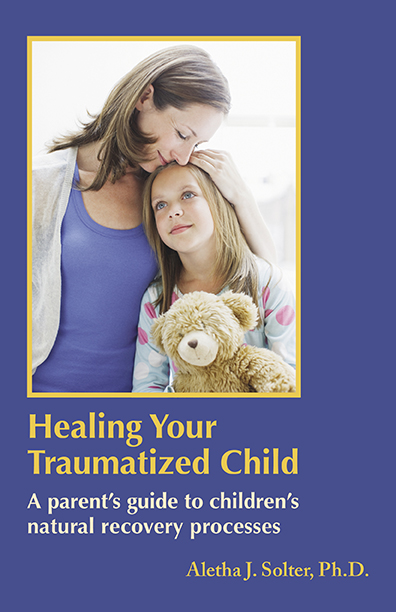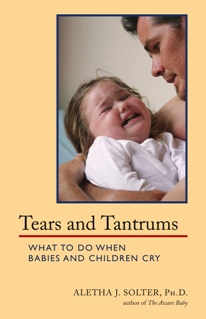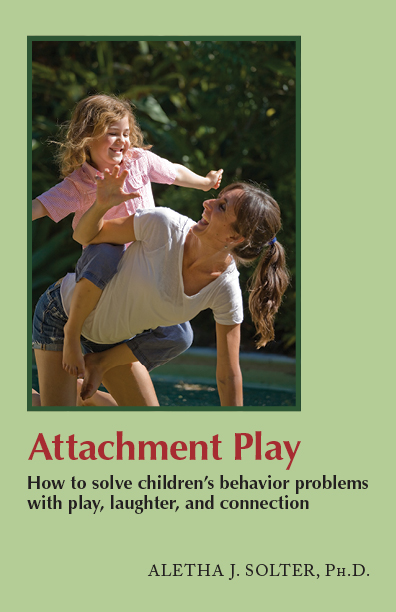Tips for parents of young children during the coronavirus pandemic
by Aletha Solter, Ph.D.
Click here for a two-page printable version for free distribution to parents.
Version française Versión en español

This is a difficult time for all of us, and especially for families who are required to stay in their homes. You may be feeling frightened and overwhelmed by events beyond your control, without having any idea how long this situation will last. Perhaps you are trying to work from home while also caring for your children. Or maybe you have lost your job and source of income, and wonder how you will pay your rent or your grocery bill. You may feel isolated, lonely, or depressed without your usual social contacts. Perhaps you are worried about an ill friend or family member, or maybe you are grieving someone who has died. Perhaps you yourself are sick.
To make matters worse, your children will also feel stressed and worried. They will miss seeing their friends and teachers, going to the playground, or playing sports. If they are doing online schooling at home, they may feel frustrated or confused with the unfamiliar format. In addition, they will pick up on your stress, which will only make them feel more frightened and insecure. The following lists describe some behaviors to expect in your children and suggestions of how you can help them. Begin by taking care of yourself. The less stressed you feel, the easier it will be to help your children through this difficult time.
Take care of yourself
- Try to arrange some time away from your children (even if only in another room).
- Keep in touch with your extended family and friends.
- Find activities that strengthen you emotionally or that help you relax. For example, do yoga, meditate, take a hot bath, have a good cry, listen to music, read a good book, or watch an entertaining film.
Behaviors to expect in children
- Increase in separation anxiety, clinging, resistance to being alone, especially at night.
- Increased crying and temper tantrums, often triggered by insignificant incidents.
- Increased fears and nightmares.
- Increase in sibling rivalry and fights.
- Regression in toileting, feeding, etc. Wanting to be treated like a baby.
- Spontaneous play with toys and themes relating to illness, hospitals, and death.
How parents can help
- Let your children stay close to you. Don't force them to play or sleep alone.
- Don't force your children to act more grown-up than they feel. It's okay to treat them like a baby if that is what they want. This will give them strength to face the situation and cope with it.
- Try to accept your children's crying and temper tantrums without punishing or distracting them. Crying is a natural stress-release mechanism.
- Encourage play and laughter about the themes of illness, hospitals, and death. Play doctor with your children and let them take the lead. Pretend to be a stupid doctor who has no idea what to do. Play and laughter help children master overwhelming experiences and release tensions.
- Give information in an age-appropriate manner. Answer your children's questions simply and truthfully, but shield them from distressing details. Like adults, children strive to understand why bad things happen. Explain this to the best of your ability.
- Avoid criticizing your government, your neighbors, or anybody else. Instead, tell your children who the helpers are: health care workers, grocery store workers, delivery people, and scientists working on a vaccine and a cure, etc.
- Keep a daily routine so your children will know what to expect. Maintain family traditions.
- If your children are being schooled virtually at home, provide help and support as needed. Supplement the online teaching with concrete activities, especially for math and science. Remember that young children learn best through hands-on activities. Make it fun.
- Try to spend individual, unstructured time with each of your children (separate from your homework help). Let them decide what to play with, and follow their lead.
- Do cooperative activities: create a story together, bake a cake, make music, or just act silly together.
- Be flexible with rules and focus on what's most important: keeping everybody safe and healthy, and maintaining a loving connection with your children.
- Provide opportunities for your children to help others. For example, draw a picture for grandma or help deliver food to a neighbor’s doorstep.
If a family member or close friend has died
- Invite your children to participate in a memorial ceremony, but also let them grieve in their own way. Accept their tears.
- Answer your children’s questions and make sure they understand that it is not their fault.
- If your children fear that you or they themselves will get sick and die, avoid reassurances that may prove to be false. Instead, acknowledge their feelings and allow them to cry. Then tell them everything you are doing to keep your family safe.
About Aletha Solter
Aletha Solter, PhD, is a developmental psychologist, international speaker, consultant, and founder of the Aware Parenting Institute. Her books have been translated into many languages, and she is recognized internationally as an expert on attachment, trauma, and non-punitive discipline.
Aware Parenting is a philosophy of child-rearing that has the potential to change the world. Based on cutting-edge research and insights in child development, Aware Parenting questions most traditional assumptions about raising children, and proposes a new approach that can profoundly shift a parent's relationship with his or her child. Parents who follow this approach raise children who are bright, compassionate, competent, nonviolent, and drug free.
For more information about helping children cope with stress and heal from trauma, see Aletha Solter's books, Healing Your Traumatized Child, Tears and Tantrums, and Attachment Play


